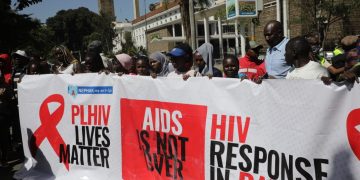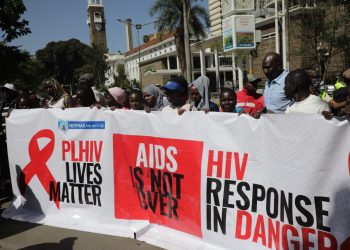By MIKE MWANIKI
A large clinical research study has found no significant difference in risk of HIV infection among women using one of three highly effective, reversible contraceptive methods.
The Sh5 billion open-label randomised study—was carried out among a total of 7,829 sexually active HIV negative women aged 16 to 35 years in Kenya, Eswatini, South Africa and Zambia.
Women were enrolled on three methods-depot medroxyprogesterone acetate-intramuscular (DMPA-IM) also known as Depo-Provera, the copper-releasing intrauterine device (Cu-IUD) and a levonorgestrel (LNG) implant (Jadelle).
The trial—known as the Evidence for Contraceptive Options and HIV Outcomes (ECHO) study—was conducted from December 2015 to October 2018 and results released on June 13, 2019 at the South Africa Aids Conference in Durban.
According to the study—which is also published in the Lancet—each method had high levels of safety and effectiveness in preventing pregnancy, with all methods well-accepted by the women using them.
However, the study also showed that incidence of HIV infections among all women participants was high—an average 3.8 per cent per year—indicating that HIV remains a significant personal risk and public health challenge for many women and their families.
World Health Organisation’s Department of Reproductive Health and Research official, Dr James Kiarie said the results support provision of a broad choice of effective contraceptive methods to women and girls, empowering them to make informed decisions about their own bodies.
“Better access to contraception and quality reproductive health services would have a dramatic impact in improving the lives of millions of women and their families.”
WHO’s HIV and Hepatitis Department official, Dr Rachel Baggaley added that the study highlights the need to step up HIV prevention efforts in high-burden countries – particularly for young women.
“These should include providing HIV testing and a range of HIV prevention choices within contraceptive service programmes.”
According to the International Aids Society (IAS) sub-Saharan Africa has the highest prevalence of HIV globally, accounting for 68 per cent of people living with HIV.
In Kenya, for example, experts say of the estimated 1.5 million people living with HIV, 1.3 million had been enrolled in the life-prolonging ARV treatment.
The National Aids and STI Control Programme (NASCOP) Head, Dr Kigen Bartilol says Kenya is experiencing 53,000 new HIV infections yearly—with women making a majority of those infected among the adolescents aged 15 to 24 years.
Experts say the high HIV infection rates among the study population underscores the need to integrate HIV and, sexual and reproductive health programmes while also accelerating the expansion of HIV prevention information and services.
Following the release of the study data, the AVAC Executive Director Mitchell Warren noted that ECHO provides data needed to guide clear policy decisions that support programmes giving women fully integrated HIV and pregnancy prevention information and choice.
“Women need expanded access to the full range of proven contraceptives and HIV prevention options, including female condoms and daily oral PrEP,” he said.
Experts say that over the past 25 years–as the HIV epidemic took hold in many countries– a number of observational research studies suggested a possible increased risk of HIV acquisition for women using Depo-Provera.
However, due to limitations in the design of these studies, it was not possible to determine whether HIV infections were due to the type of contraceptive method used or other factors.
The results of the ECHO trial are the most robust to date that address these concerns.
All women who participated in the study received ongoing health services, including counselling on HIV prevention and care, screening and treatment for sexually transmitted infections.
The results revealed that among the 7,829 women who took part in the study, 397 HIV infections occurred. There was no statistical difference in the rate of acquisition of HIV among the women.
143 infections were in women who used Depo-Provera, 138 were in women who used a copper-bearing IUD and 116 in women who used a levonorgesterel implant.
“The high rate of HIV infection among women, and especially younger women, reinforces the need to strengthen HIV prevention integration within contraceptive and other sexual and reproductive health services,” researchers note.
These may include HIV testing and linkage to antiretroviral therapy for those testing HIV-positive, partner testing, condom promotion, and pre-exposure prophylaxis (PrEP).
According to experts, currently 214 million women in developing countries want to avoid pregnancy but do not use a modern contraceptive method. High-quality and integrated services that are designed in consultation with women and that respect the human rights of women and girls, protect their privacy, and are provided free of stigma, discrimination, violence or coercion are essential.
The study findings support continued access to all the methods studied by all women including those at high risk of HIV infection.
Following its standard practice when important new research findings are published relating to contraceptive safety, WHO will convene a Guideline Development Group to review its existing recommendations concerning women’s eligibility for using various contraceptive methods if they are at high risk of HIV.














